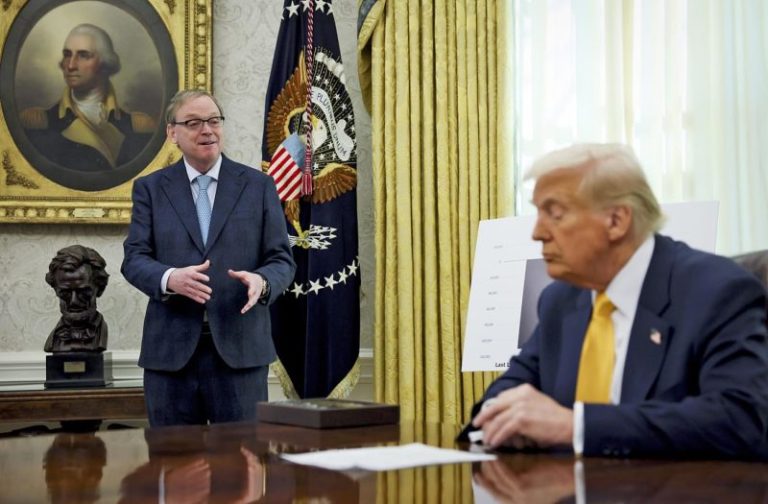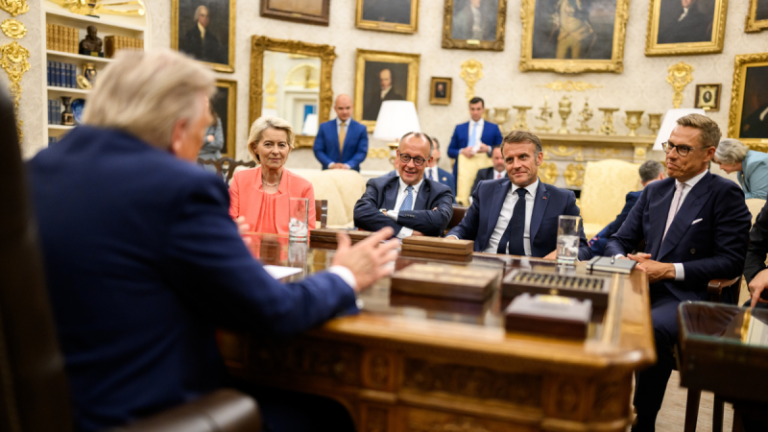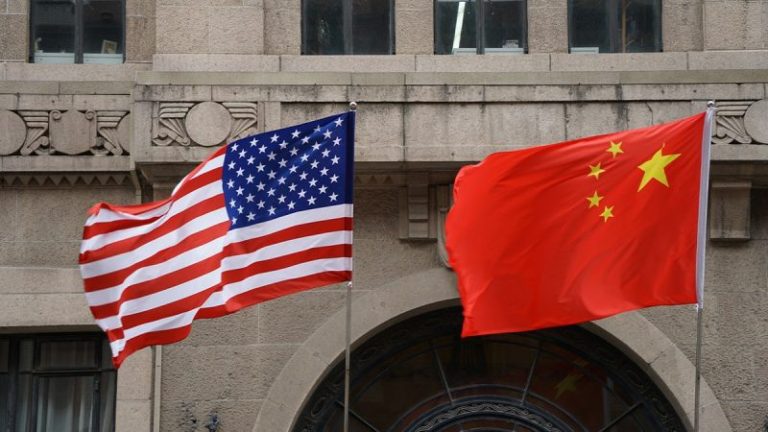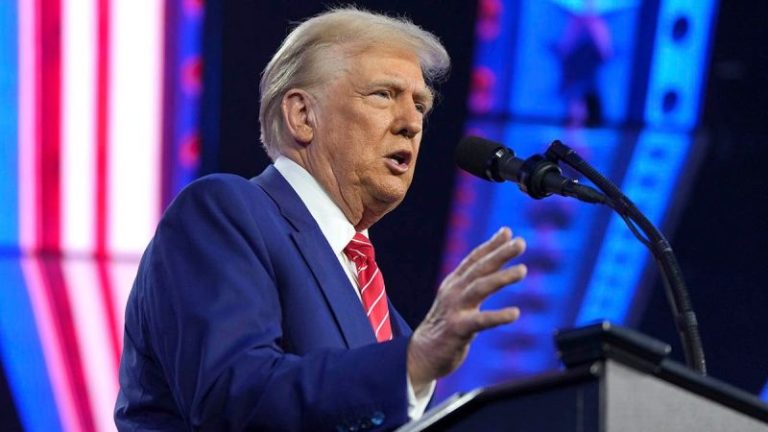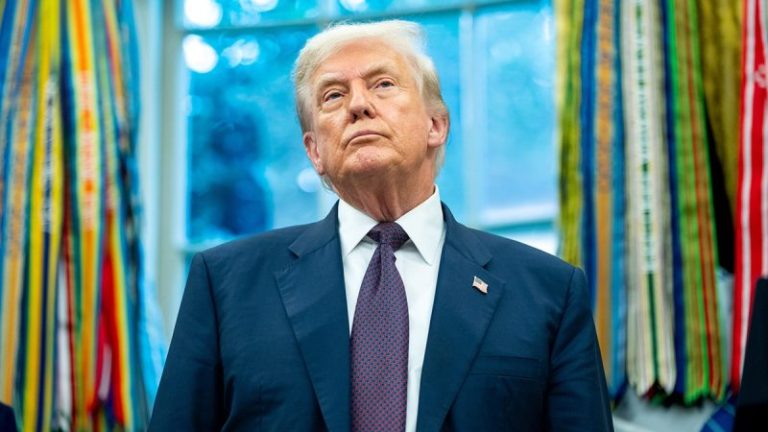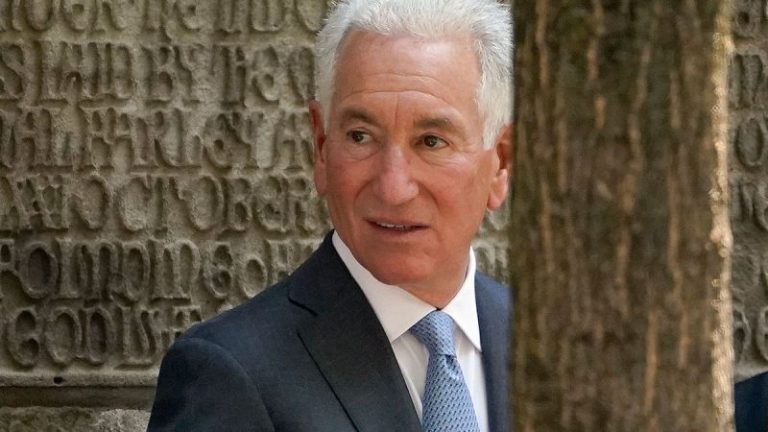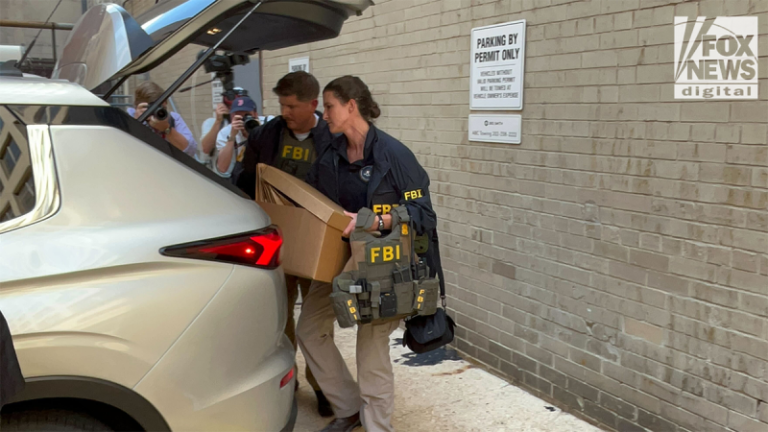Former National Security Advisor John Bolton, who served under President Donald Trump’s first administration, was the subject of FBI raids at his home and office Friday morning as federal authorities searched for classified documents.
The raids follow a storied history between Trump and Bolton that has devolved into the pair trading repeated political blows on the public stage.
News broke early Friday morning that FBI agents flocked around Bolton’s Maryland home and were seen carrying out boxes, which was followed hours later by the FBI raiding Bolton’s Washington, D.C., office.
‘I’m not a fan of John Bolton,’ Trump told reporters on Friday morning after the raids began, adding he saw the reports but was not aware of details on the raid ahead of time. ‘He’s a real sort of a lowlife.’
‘He’s a very quiet person, except on television, if he can say something bad about Trump,’ Trump added. ‘He’s not a smart guy, but he could be a very unpatriotic guy. We’re going to find out.’
The remarks echo years of past comments the pair have shared in public forums airing their dissatisfactions with one another, most notably after Trump tapped Bolton to serve as his national security advisor in 2018.
Fox News Digital took a look back at the pair’s relationship since Trump’s mad dash to fill his first administration in 2017, through his ouster of Bolton as the national security advisor and the ongoing clashes the pair have shared since.
‘I like (Bolton),’ Trump said in 2015 while appearing on ‘Meet the Press’ just weeks after announcing his candidacy for the White House. ‘I think he’s, you know, a tough cookie, knows what he’s talking about.’
Bolton was first speculated as a likely pick to serve as Trump’s secretary of state in December 2016, when Trump was preparing for his first inauguration after his upset victory over Hillary Clinton in the election that year. Pundits touted Bolton as an experienced foreign policy hawk who could bolster Trump’s diplomatic agenda, and conservative outlets such as the National Review’s editorial board implored the Trump transition team to choose Bolton, identifying him as a ‘hard-headed realist whose focus is always the national interest.’
Trump, however, ultimately tapped Rex Tillerson to serve as secretary of state.
Bolton showered Trump with praise of his own ahead of his confirmation as national security advisor in 2018, calling the president ‘a terrific guy’ who ‘knows a lot’ when the administration kicked off in 2017.
The warm relationship got cozier when Trump announced in 2018 on X that he called on Bolton to serve as his national security advisor
‘I am pleased to announce that, effective 4/9/18, @AmbJohnBolton will be my new National Security Advisor. I am very thankful for the service of General H.R. McMaster who has done an outstanding job & will always remain my friend. There will be an official contact handover on 4/9.’
‘I didn’t really expect that announcement this afternoon,’ Bolton said on Fox News shortly after the announcement. ‘But it’s obviously a great honor and always an honor to serve our country.’
The pair found common ground on issues such as withdrawing the U.S. from the Joint Comprehensive Plan of Action, otherwise known as the Iran nuclear deal, which was an Obama-era agreement with other world powers to limit Iran’s nuclear capabilities.
Trump ultimately pulled the U.S. out of the agreement in 2018, slamming it as a ‘horrible one-sided deal that should have never, ever been made,’ and was backed by his hawkish group of foreign policy advisors, such as Bolton and then-Secretary of State Mike Pompeo.
Bolton’s relationship with Trump began to sour as he advanced hard-line strategies toward U.S. adversaries, including Iran and North Korea. He had long advocated regime change in Tehran, though he later clarified in his role as national security advisor that American policy was ‘not regime change,’ but rather a push for ‘massive change in the regime’s behavior.’ Trump, by contrast, initially favored a more diplomatic path, urging that flaws he saw in the Iran nuclear deal be renegotiated before ultimately deciding to withdraw from the agreement altogether.
‘John Bolton is absolutely a hawk. If it was up to him, he’d take on the whole world at one time, okay?’ Trump said of Bolton in June 2019, underscoring the bubbling tensions between the two on foreign policy.
In April 2018, Bolton suggested North Korea follow Libya’s example of denuclearization, which he called the ‘Libya model,’ and included the country giving up its nuclear weapons in 2003 in exchange for the lifting of economic sanctions. Bolton’s comments about such a model for North Korea set off condemnation in Pyongyang as they raised concerns this would lead to potential regime change.
Trump cited the comment following Bolton’s abrupt exit from the White House in September 2019.
‘We were set back very badly when John Bolton talked about the Libyan model … what a disaster,’ Trump told reporters at the time.
Days ahead of Bolton’s ouster, Trump was slated to meet with Taliban leaders in an effort to negotiate peace in Afghanistan, but the meeting never took place and Bolton reportedly slammed such an effort in conversations with Trump, media outlets reported at the time.
Bolton was ousted from his role as national security advisor Sept. 10, 2019, with Trump characterizing the departure as a firing, and Bolton saying he tendered his resignation and was not fired.
‘I informed John Bolton last night that his services are no longer needed at the White House,’ Trump tweeted in 2019. ‘I disagreed strongly with many of his suggestions, as did others in the Administration, and therefore I asked John for his resignation, which was given to me this morning. I thank John very much for his service. I will be naming a new National Security Advisor next week.’
Bolton shot back on X that he ‘offered to resign last night and President Trump said, ‘Let’s talk about it tomorrow.”
The former national security advisor was replaced by Robert C. O’Brien, with Trump and Bolton continuing their contentious relationship years later.
The raid on Bolton’s home is part of the ‘early stages of an ongoing investigation into John Bolton,’ Vice President JD Vance said Friday during an appearance on ‘Meet the Press.’ Bolton was not arrested or in custody amid the early morning raids.
The searches are focused on potential classified documents agents believe Bolton may still possess, Fox News reported.
This post appeared first on FOX NEWS


